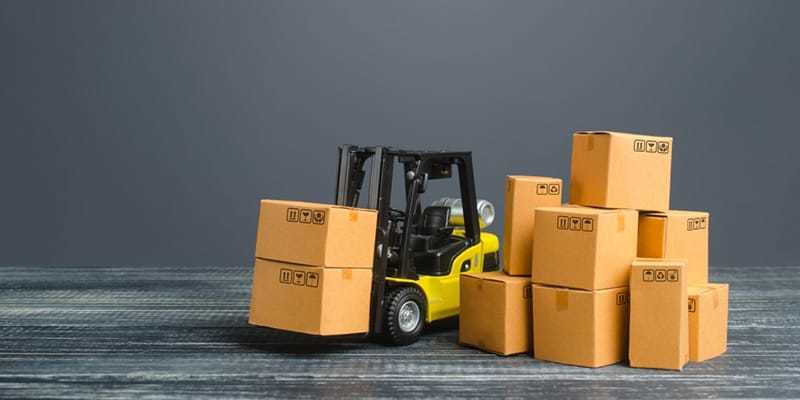Material management refers to the process of planning, organizing, and controlling the flow of materials within an organization. This is a crucial aspect of any organization that deals with production, distribution, or any form of inventory management. It involves the planning, procurement, storage, and utilization of materials needed for the smooth operation of a business. The primary goal of this article is to give you full detail on all you need to know and ensure the management knows the availability of the right materials, in the right quantities, at the right time, and in the right place, while also minimizing costs and optimizing resource utilization.
What is Material Management?
Material management is also known as inventory management or supply chain management. It is a crucial process in any organization that deals with the acquisition, storage, and utilization of materials required for production or service delivery. It encompasses a wide range of activities, from sourcing raw materials to the distribution of finished products or services.
The primary objectives of material management are to ensure an uninterrupted supply of materials, optimize inventory levels, reduce costs, and improve overall efficiency. Effective material management helps organizations maintain the right balance between holding enough stock to meet demand and avoiding excess inventory that ties up capital and increases storage costs.
Key Components of Material Management
#1. Demand Forecasting
Accurately predicting the future demand for products or services is essential to plan for the required materials and avoid stockouts or overstocking.
#2. Sourcing and Procurement
Identifying reliable suppliers, negotiating contracts, and obtaining quality materials at competitive prices are essential for maintaining a smooth supply chain.
#3. Inventory Control
Managing inventory levels, determining optimal reorder points, and implementing inventory tracking systems to avoid stockouts and minimize carrying costs.
#4. Material Handling and Storage
Ensuring the proper handling, storage, and preservation of materials to prevent damage and deterioration.
#5. Quality Control
Implementing quality assurance measures to ensure that the materials received meet the required standards and specifications.
#6. Transportation and Logistics
Efficiently managing transportation and logistics to move materials from suppliers to warehouses and then to production facilities or customers.
#7. Vendor Management
Building strong relationships with suppliers and regularly evaluating their performance to ensure timely deliveries and quality materials.
#8. Cost Control
Analyzing and minimizing the costs associated with material acquisition, storage, handling, and transportation.
#9. Technology and Automation
Utilizing advanced software systems, such as Enterprise Resource Planning (ERP) or Material Requirements Planning (MRP), to streamline material management processes and enhance data visibility.
#10. Sustainability and Environmental Considerations
Incorporating environmentally friendly practices into material management, such as recycling and responsible waste disposal.
Importance of Material Management?
The importance lies in its ability to optimize the flow of materials, reduce costs, improve operational efficiency, and enhance customer satisfaction.
Here are reasons why this is important.
#1. Cost Optimization
Effective material management helps control inventory costs by avoiding excess or obsolete inventory and minimizing stockouts. It enables organizations to procure materials at competitive prices, negotiate favorable contracts, and implement cost-saving measures.
#2. Improved Efficiency
Efficient material management ensures the availability of materials when needed, reducing production delays and minimizing downtime. It streamlines processes such as procurement, storage, and distribution, improving overall operational efficiency.
#3. Customer Satisfaction
Timely availability of materials plays a critical role in meeting customer demands and delivering products on time. Effective material management ensures that the right materials are available to support production schedules, meet customer orders, and maintain high service levels.
#4. Quality Control
Material management incorporates quality control processes to ensure that materials meet the required specifications and standards. This helps maintain product quality and reduces the risk of using substandard or non-conforming materials.
#5. Supply Chain Optimization
Material management is an essential component of supply chain management. Optimizing material flows, coordinating with suppliers, and improving inventory management, contributes to a more efficient and responsive supply chain.
Principles of Material Management
#1. Demand Forecasting
Accurate forecasting of material requirements based on production plans, customer orders, and historical data is crucial for effective material management. It helps prevent stockouts and overstocking.
#2. Just-in-Time (JIT) Approach
JIT is a principle that aims to minimize inventory levels by receiving materials and replenishing stock only when needed. It helps reduce carrying costs and improve overall efficiency.
#3. Economic Order Quantity (EOQ)
EOQ is a principle that determines the optimal order quantity to minimize the total cost of inventory, considering factors such as ordering costs, carrying costs, and demand patterns.
#4. ABC Analysis
ABC analysis categorizes inventory items based on their value and importance. It helps prioritize materials for management attention, focusing efforts on critical items while optimizing resources.
#5. Vendor Management
Effective vendor management involves selecting reliable suppliers, establishing strong relationships, and negotiating favorable terms. It ensures a steady supply of quality materials at competitive prices.
#6. Continuous Improvement
Material management practices should be continuously evaluated and improved. Regular analysis of data, performance metrics, and feedback helps identify areas for optimization and implement appropriate changes.
Key Materials Management Areas
The key areas of materials management include the following:
#1. Material Planning
This involves forecasting and determining the material requirements based on production schedules, customer demand, and inventory levels. It includes developing strategies to ensure the timely availability of materials to support production and meet customer orders.
#2. Procurement
This area focuses on sourcing and acquiring materials from suppliers. It involves supplier selection, negotiation of contracts, placing purchase orders, and managing relationships with suppliers. Procurement aims to obtain materials at the right price, quality, and quantity.
#3. Inventory Management
This area involves the control and optimization of inventory levels. It includes tracking stock levels, monitoring usage patterns, conducting regular audits, and ensuring accurate record-keeping. The goal is to balance inventory costs with the need to have sufficient materials available to meet production and customer demands.
#4. Warehouse Management
This encompasses the physical storage and handling of materials within a warehouse or distribution center. It involves organizing the layout, implementing efficient storage systems, overseeing inventory movements, and coordinating with logistics and transportation teams.
#5. Material Handling
This area focuses on the movement and transportation of materials within the organization. It includes activities such as receiving materials, storing them in appropriate locations, and retrieving materials for production. It can be for distribution, and managing material flow throughout the supply chain.
#6. Quality Control
This area ensures that the materials received meet the required quality standards. It involves collaborating with quality assurance teams to establish quality specifications. It is also conducting inspections, testing, and addressing any quality issues or non-conforming materials.
#7. Cost Management
This area focuses on optimizing costs associated with materials management. It includes analyzing material costs, identifying cost-saving opportunities, and negotiating favorable terms with suppliers. It is exploring alternative sourcing options, and implementing measures to reduce expenses.
#8. Documentation and Reporting
This involves maintaining accurate records and documentation related to materials management activities. It includes generating reports on inventory levels, supplier performance, material usage, and other relevant metrics to provide insights for decision-making and performance evaluation.
Material Management Salary
The salary for material management professionals can vary significantly depending on factors such as education, experience, industry, location, and the size of the organization.
The geographical location can significantly impact salary levels. Salaries tend to be higher in major metropolitan areas or regions with a higher cost of living. Salaries can also vary based on the industry in which the material management professional works.
Here are some material managers’ salary figures:
- Entry-level positions: For entry-level positions in material management, such as inventory control clerk or procurement assistant, salaries can range from $30,000 to $45,000 per year.
- Mid-level positions: As professionals gain experience and take on more responsibility, they can progress to mid-level positions such as materials coordinator, purchasing manager, or supply chain analyst. Salaries for these roles typically range from $45,000 to $80,000 per year.
- Senior-level positions: Senior material management roles, such as materials manager, supply chain manager, or procurement director. They receive higher salaries due to their increased responsibilities and leadership roles. Salaries for senior-level positions can range from $80,000 to $150,000 or more per year.
- For SAP Materials Management (SAP MM) jobs/Salary), the reported salary range is $56k – $119k with an average salary of $87,243.
Material Management Job Description
Job Title: Material Management Specialist
Specific responsibilities and qualifications may vary depending on the organization and industry.
The Material Management Specialist is responsible for supporting and optimizing the overall material management process within the organization. They are responsible for the timely and accurate procurement, inventory control, and distribution of materials required for various projects. The specialist is also accountable for maintaining accurate records, analyzing supply chain performance, and implementing improvements to enhance efficiency and cost-effectiveness. Specific responsibilities and qualifications may vary depending on the organization and industry.
Key Responsibilities and Duties
#1. Procurement
Source, evaluate, and negotiate with suppliers to ensure timely and cost-effective procurement of materials and supplies. Create purchase orders, review purchase requisitions, and ensure compliance with procurement policies and procedures.
#2. Inventory Management
Develop and implement inventory management strategies to optimize inventory levels, minimize stockouts, and reduce holding costs. Monitor inventory levels, replenish stock as needed, and coordinate with suppliers to manage lead times effectively.
#3. Material Planning
Collaborate with cross-functional teams to determine material requirements for various projects. Prepare and maintain material plans, ensuring alignment with project timelines and budgets.
#4. Vendor Management
Establish and maintain strong relationships with suppliers to ensure on-time delivery of quality materials. Conduct regular supplier performance evaluations and implement necessary corrective actions.
#5. Logistics and Distribution
Coordinate with logistics teams to manage the movement and distribution of materials. Ensure proper packing, shipping, and tracking of materials to various locations.
#6. Documentation and Recordkeeping
Maintain accurate and up-to-date records of material inventory, receipts, and distribution. Generate reports and analyze data to identify areas of improvement and cost-saving opportunities.
#7. Process Improvement
Continuously review and evaluate material management processes to identify opportunities for process optimization, cost reduction, and efficiency improvement. Implement best practices and innovative solutions to enhance material management performance.
#8. Compliance and Risk Management
Ensure compliance with relevant regulations and guidelines about material management. Identify and mitigate risks associated with material procurement, storage, and distribution.
Qualifications and Skills
- Bachelor’s degree in supply chain management, logistics, or a related field.
- Proven experience in material management, procurement, and logistics.
- Excellent knowledge of procurement principles, inventory management techniques, and supply chain processes.
- Strong analytical and problem-solving skills.
- Proficient in using material management software and tools.
- Excellent communication and negotiation skills.
- The ability to work collaboratively in cross-functional teams.
- A detail-oriented with strong organizational and time management skills.
- The ability to work under pressure and meet deadlines.
What are the Main Functions of Material Management?
The main functions of material management include procurement, inventory control, distribution, and documentation. Procurement involves sourcing, evaluating, and negotiating with suppliers to ensure the timely and cost-effective acquisition of materials and supplies. Inventory control focuses on managing inventory levels, minimizing stockouts, and reducing holding costs. Distribution entails coordinating the movement and distribution of materials to various locations. Documentation involves maintaining accurate records of material inventory, receipts, and distribution. These functions work together to ensure efficient and effective material management throughout an organization.
What is Material Management Called?
Material management is also commonly referred to as inventory management or supply chain management. These terms are often used interchangeably to describe the processes and practices involved in managing materials, supplies, and inventory throughout an organization.
Material management can also be referred to as:
- Logistics management
- Materials planning and control
- Materials and procurement management
- Materials and resource management
- Materials handling and distribution
These terms are often used interchangeably, depending on the context and industry.
What are the Key Materials Management Areas?
The key areas of materials management include the following:
- Material Planning
- Procurement
- Inventory Management
- Warehouse Management
- Material Handling
- Quality Control
- Cost Management
- Documentation and Reporting
What are the Importance and Principles of Material Management?
The importance of material management lies in its ability to optimize the flow of materials, reduce costs, improve operational efficiency, and enhance customer satisfaction.
Here are reasons why material management is important.
- Cost Optimization
- Improved Efficiency
- Customer Satisfaction
- Quality Control
- Supply Chain Optimization
Principles of Material Management
- Demand Forecasting
- Just-in-Time (JIT) Approach
- Economic Order Quantity (EOQ)
- ABC Analysis
- Vendor Management
- Continuous Improvement
Conclusion
To achieve effective material management, organizations employ various techniques and strategies. These can include forecasting and demand planning, inventory control, vendor management, and efficient storage and retrieval systems. Forecasting and demand planning enable organizations to plan for procurement, production, and distribution processes effectively. Implementing efficient storage and retrieval systems is essential for effective material management. This includes establishing appropriate warehouse layouts, implementing inventory tracking systems, and employing technologies.
Effective vendor management helps in securing quality materials at reasonable prices, reducing lead times, and maintaining a reliable supply chain. Material management plays a vital role in optimizing operational efficiency and maintaining a competitive edge in any organization. By implementing effective strategies and techniques, businesses can ensure a steady supply of materials while minimizing costs, reducing lead times, and meeting customer expectations. The principles of material management include economic order quantity (EOQ), ABC analysis, vendor management, and continuous improvement. These principles guide organizations in optimizing material flows, minimizing inventory levels, establishing strong supplier relationships, and continuously enhancing material management processes.
Related Articles
- WHAT ARE THE LEVELS OF MANAGEMENT AND THEIR FUNCTIONS?
- WHAT IS MANAGEMENT BY OBJECTIVES (MBO)? Examples, and Detailed Guide
- SELF MANAGEMENT: What It Means & Tips To Improve It
- MANAGEMENT CONSULTING FIRMS: Best US Consulting Firms 2023
- WHAT IS A CONTENT MANAGEMENT SYSTEM (CMS)






